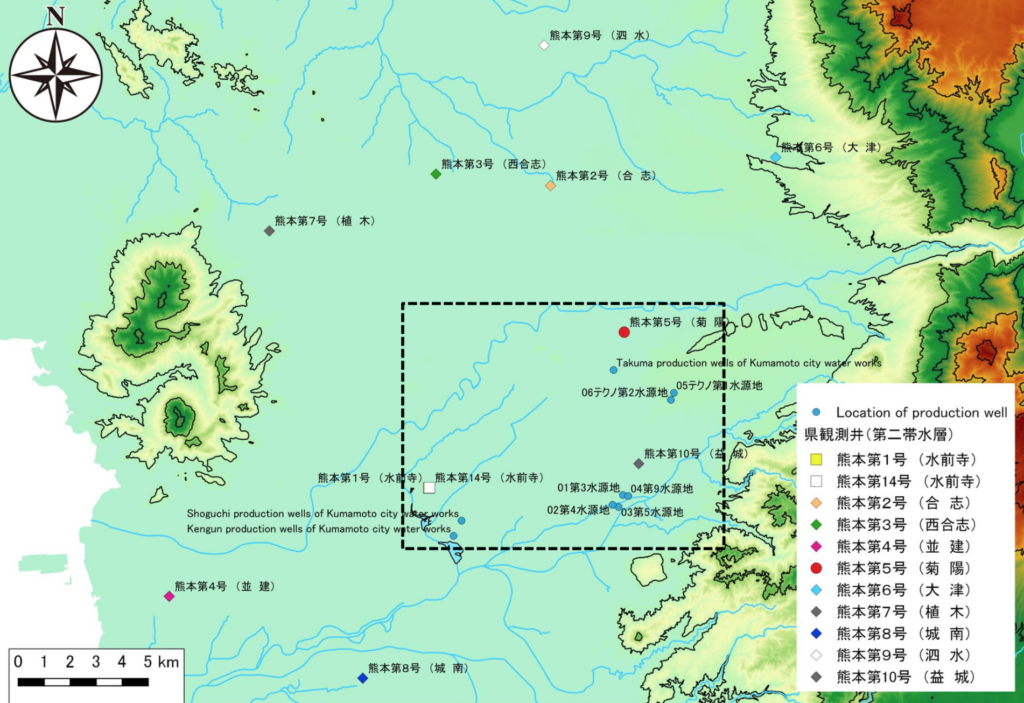The objective of this study is to characterize and quantify the “trans-spatial nexus synergy” benefit of subsidized water ponding in the water-energy-food nexus in Kumamoto, Japan. After years of decreased rice production in upstream areas and associated declines in groundwater levels, the Kumamoto city government implemented a subsidy program whereby farmers in the Shira River basin receive payments to water their fields, which provides valuable groundwater recharge to downstream Kumamoto city. We quantify the economic benefits of this subsidy program, which include avoided additional energy costs to obtain scarcer levels of groundwater, as well as net revenue from the crops in the Shira River basin that would otherwise not be grown in the absence of the subsidy. These annual benefits can be combined and compared to the annual cost of the government subsidy. We also calculate potential historical losses that may have occurred in the region as a result of land use transitions from rice farming to urban use, which disrupted the nexus synergy between the watered fields and the groundwater table.




